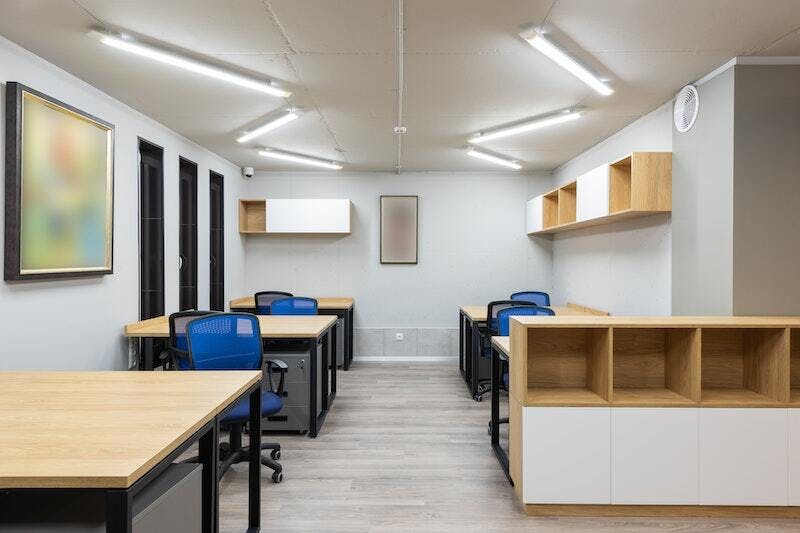
Have you ever thought about how you can reduce your taxable income bill? We’re here to help you do just that by introducing the concept of tax deductions. Very simply put, tax deductions or tax write-offs comprise of an amount that is removed from the total amount of tax that you have to pay. The way that you perform a tax deduction has to meet the IRS’ standards as well.
It can be tough for small businesses to recognize which tax deductions apply to their business. You might forget a particular advertising expense or fail to record an interest expense and with that goes away your chance of saving on the tax bill. With some accounting help, you can put this burden at bay. In this article, we will talk about the different options of tax deductions available to small businesses.
Importance of Understanding Tax Deductions for Small Business Owners
Small businesses should opt for tax deductions to save money. You can reduce your total income tax bill by claiming these tax deductions. Some deductions are directly related to your business operations, while other tax deductions are more personal. As you read through, you will become aware of this distinction. Tax deductions can also help you save.
For example, you earn $50,000 in a year. You have to pay a self-employment tax rate of 10% on it along with the individual income tax rate. This makes the total tax expense $11,400. Through bookkeeping, an amount of $4,000 is recognized as contractor expenses. This is accounted as tax deductions expense. Your earnings are then reduced to $42,000. The total amount of tax on this amount then becomes $9,576. So you are able can save $1,824 for future use.
Types of Tax Deductible Business Expenses

Source: Pexels
When you’re a small business, you may not know which tax deduction apply to you. Luckily there are a lot! Here’s a thorough list of them all:
ADVERTISING AND PROMOTION
The costs of advertising that you can deduct from taxes are listed below:
Cost of designing a logo paid to a freelancer or graphic designer
Purchasing a website domain and creating a website
Ad placement on websites or in print media
Hiring someone to create a business card for you and sending it to clients
Cost of designing a brochure for a particular product or service
Carrying out a digital media campaign from start to finish
BUSINESS INTEREST AND BANK FEES
You might think small businesses don’t need a separate bank account, and using your personal account for transactions would be fine. However, in the long run, doing so can become messy. So, you should keep your professional and private accounts separate.
Any miscellaneous charges from the bank like service fees, transfer charges, or transaction fees on business accounts are treated as a small business tax deduction. In case you get a business loan from the bank, the interest rate charged is also tax-deductible.
BUSINESS MEALS
If your employees are sitting late preparing for an important meeting, around 50% of the cost spent on their food is also deducted from your tax. Note that in 2021 and 2022, 100% of the cost will be deductible thanks to the "3 martini lunch" tax law. You just need to keep track of the date and the location of each meal, why it was ordered, and the total cost of the meal.
You can keep the agenda in mind while keeping track of these expenses. The business owner or employee must be present at that time. Another thing to keep in mind is that the meal should not be fancy or over-the-top. In the event of an office party or a retreat, 100% of the food expenses are a part of tax deductions.
BUSINESS INSURANCE

Source: Pexels
Business insurance expenses can also be deducted from your tax bill. If you are running a business from your home, a part of the insurance cost from your rent will also be tax-deductible. We will discuss home office deduction in detail later. Pre-tax deductions such as health insurance and retirement savings can also positively affect your taxable income.
Other types of deductible insurance premiums include:
Coverage for an office building, furniture, and equipment
Health insurance for the employees
Coverage for liability
Auto insurance for means of transportation owned by the business
Insurance for if the business shuts down due to an unforeseen circumstance
Life insurance for employees
Insurance against any misconduct or negligence
WORK TRAVEL EXPENSES
Whenever you’re traveling for work, certain expenses are a part of tax deductions. To qualify for this, you need to be away from your place of business for more than a regular workday.
The expenses included in tax deductions are airfare, parking fee, cost of using taxis or rented cars on the trip, hotel accommodation, ironing, dry cleaning, and three meals per day. It is vital to keep a record of all these expenses, your date of arrival and return, and the purpose of the business trip.
USE OF CAR FOR BUSINESS PURPOSES
If you’re using your car only for business purposes, all the expenses attached with maintenance are tax-deductible. Some people may use work cars for personal reasons, but those expenses will not be a part of the tax deductions.
Vehicle tax deductions can be made either through the standard mileage rate or actual expenses method. For the standard mileage rate, you need to multiply the miles driven with a standard rate. This rate can change from year to year.
In the actual expense method, all expenses need to be listed down, such as gas, oil, maintenance, and repairs. The amount needs to then be multiplied by the miles driven. Hence, you should keep a detailed log of mileage and the trips that you have taken.
PART-TIME LABOR

Source: Pexels
Hiring freelancers, independent contractors or a person for a part-time job is a common practice for businesses. The expense associated with this hiring will be a part of tax deductions. You will have to issue a Form 1099-MISC to any labor receiving greater than $600 in a particular year.
EDUCATION
Any activity where you are learning or imparting knowledge to employees, say for a new business trend, will be counted as a tax deduction. These activities are a source of value addition to your business and will be fruitful in the long run.
The said activity must broaden your skills. The types of expenses which come under this header include classes to improve skills, workshops for employees, seminars on various topics, and subscriptions to books or magazines related to your field of work. Any transportation cost needed for this purpose will also be deducted from tax.
DEPRECIATION
This accounts for any wear and tear of office furniture and supplies. The cost of depreciation is spread over the years rather than subtracting a lump sum amount at one time. As per the IRS criteria, small businesses can add assets that cost less than $2,500 in the same year as they are bought.
You can also opt for bonus depreciation. You can account for more than the actual depreciation expense on the property, equipment, and machinery you have purchased. So, 100% of the cost is deducted.
The method to calculate depreciation is to divide the total cost of the asset by the number of years it will be useful.
HOME OFFICE EXPENSES
Most small businesses use a part of their homes as office space. So, the expenses incurred in your home office can be deducted from the tax. The simple method to do this is to subtract $5 per square footage of the area used for the business operations. The maximum limit for this is 300 square feet.
Another way is to create detailed records of home maintenance expenses, rent, housekeeping, and mortgage interest and then multiply this with the percentage of area that is used for the business.
The home office needs to be used daily to qualify for this deduction. You need to make a clear bifurcation between the home and office space. Any one-time occurrence, such as attending a meeting in the dining room, would not be written off as an expense. In addition to this, the home office should be the primary place where you carry out all professional activities.
OFFICE EXPENSES

Source: Pexels
Any expense used in the business, such as paper, pens, pencils, printers, soft wares, and whiteboards, can also be deducted. This should be done in the year in which you buy them. The cost incurred on posting something or shipping can also be a part of tax deductions. Since these are basic day-to-day expenses, you need to document them clearly so that you don’t forget to deduct them later on.
SALARIES AND BENEFITS
Small businesses have the benefit of writing off salaries and benefits of employees from the tax bill. You just need to ensure that the employee is not a partner or sole trader. The salary amount is realistic, and all required work has been done by the employee.
LEGAL AND PROFESSIONAL FEES
Any professional service to help the business, such as legal fees or financial advising fees, will be deducted from tax. You might also use accounting or bookkeeping software for smooth operations. The expenses incurred by these services can also be removed from the tax bill. The cost of a personal expense, however, will not a part of this category.
CHARITABLE CONTRIBUTIONS
Every business tries to contribute towards the greater good of society through corporate social responsibility programs. Even small businesses would want to help charitable organizations. These expenses can be claimed on your form if you are a sole trader or a partnership. An organization will have to file for a corporate tax return.
PHONE AND INTERNET EXPENSES
Using the phone and internet is integral to the working of a business. If you already have a telephone line, you cannot deduct the expense from the tax bill. A second line, however, would be included in the tax deduction.
The same applies to using a cell phone and the internet. If the phone is used for both personal and business work, you should distinguish between the two and only deduct the professional usage from the tax. You might have provided a separate phone or an internet package to senior employees. This would also be a part of tax deductions.
DAY CARE SERVICES
The costs associated with taking care of children who are dependent on employees are also tax-deductible. This also applies to dependent adults, such as spouses or parents who suffer from a physical or mental disability. The maximum amount you are allowed to deduct is $3,000 for one dependent.
MOVING EXPENSES
If you are moving your business from one place to another, it will cost you to shift your heavy machinery and inventory. The cost incurred in this regard can also be deducted from your tax amount. For this relocation, you must fulfill the criteria of the distance test. The new location should at least be 50 miles away from the previous location.
RENTAL EXPENSES
A small business doesn’t need to have a home office. As the business expands, you might want to rent a space so that you can work conveniently. The rent can be deducted from your tax too. If you are working from a house you rent, your home rent will not be eligible for a tax deduction.
QUALIFIED BUSINESS INCOME
The Qualified Business Income deduction typically represents the profit earned from a qualified business, though there are limitations and exceptions to consider. The introduction of the QBI deduction through the Tax Cuts and Jobs Act of 2017 offers tax relief for small business owners and entrepreneurs by lowering their overall tax liability.
This deduction can assist small businesses in keeping more of their earnings to allocate towards expanding their business, hiring additional employees, or purchasing equipment. However, the eligibility criteria and restrictions for the QBI deduction can be intricate and challenging to comprehend, so it is advisable to seek professional tax advice to optimize the benefits for your small business.
Summing Up
Who doesn’t want to earn a little extra and take a much-needed vacation or splurge a little? We know we do. Luckily, if you’re a small business owner, one such way to save money is by using tax deductions. By now, you probably have a clear idea about how this can be done and the type of expenses to include. You need to be at the top of your bookkeeping game to list down each of these expenses. The records also need to be organized daily basis.
It can become overwhelming when you have a huge list of expenses and can’t seem to remember them. You might take a home expense as a business expense. The best idea is to hire help to sort out all financial records. You can share your financial records with an accountant or use software to track all your expenses.